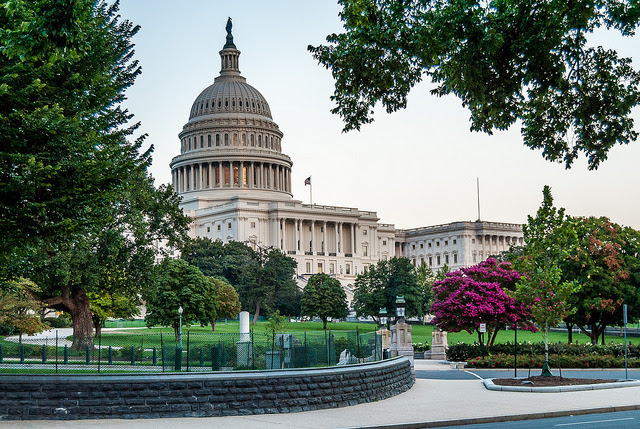Title III, Trade of the 2014 Farm Bill discusses USDA’s food aid, export market development, and export credit guarantee programs. The bill reauthorized many standing programs, including the Market Access Program, Food for Peace, the Foreign Market Development program. The Market Access Program (MAP) allows U.S. agricultural trade associations, cooperatives, state regional trade groups, and small businesses to…
Read MoreTitle II: Conservation
The programs most concerning public health and soil conservation under Title II Conservation are: the Environmental Quality Incentives Program (EQIP), Conservation Reserve Program (CRP), Conservation Stewardship Program (CSP),and Regional Conservation Partnership Program (RCPP). Each of these programs are voluntary conservation programs that provide financial assistance to implement particular conservation practices; most of them also provide technical assistance. Examples of conservation issues addressed in…
Read MoreThe Farm Bill: An Introduction
Every five years, Congress rewrites the “Farm Bill,” a key piece of legislation that impacts our food, our soil and water quality, our health, and our wallets. The “Farm Bill” is a federal omnibus bill that covers a variety of food and farm-related concerns, and provides funding and support for various federal programs. Some of…
Read MoreTitle X: Horticulture
Title X Horticulture includes the most programs that support specialty crops including organics and local foods. These programs incentivize specialty crops, promote fresh fruit and vegetable consumption, promote organic agriculture, and provide funding for pest identification and control. One key provision is the Specialty Crop Block Grant Program (SCBG). The purpose of the grant program “is to solely enhance…
Read MoreMulti-stakeholder Engagement and Collaboration
MCE works with small farm outreach specialists, urban farmers, community development organizations, local government, social entrepreneurs and others to support local food, environmental stewardship, family farms, and nutrition and healthy equity. From our engagement with individuals and organizations about the current gaps in our food system, and research on what other cities and states are doing, we set 4 major priorities for our Local…
Read MoreLocal Policy: A Tool for Building Up Healthy Food Systems
Following the production of the 2014 St. Louis Regional Food Study, it became clear that changes were needed to our local food system. Through networking and partnership development, MCE identified several gaps in the food system that need filling. Education gap: more education about the harmful impacts of industrialized agriculture is needed for individuals to understand the benefits…
Read More
